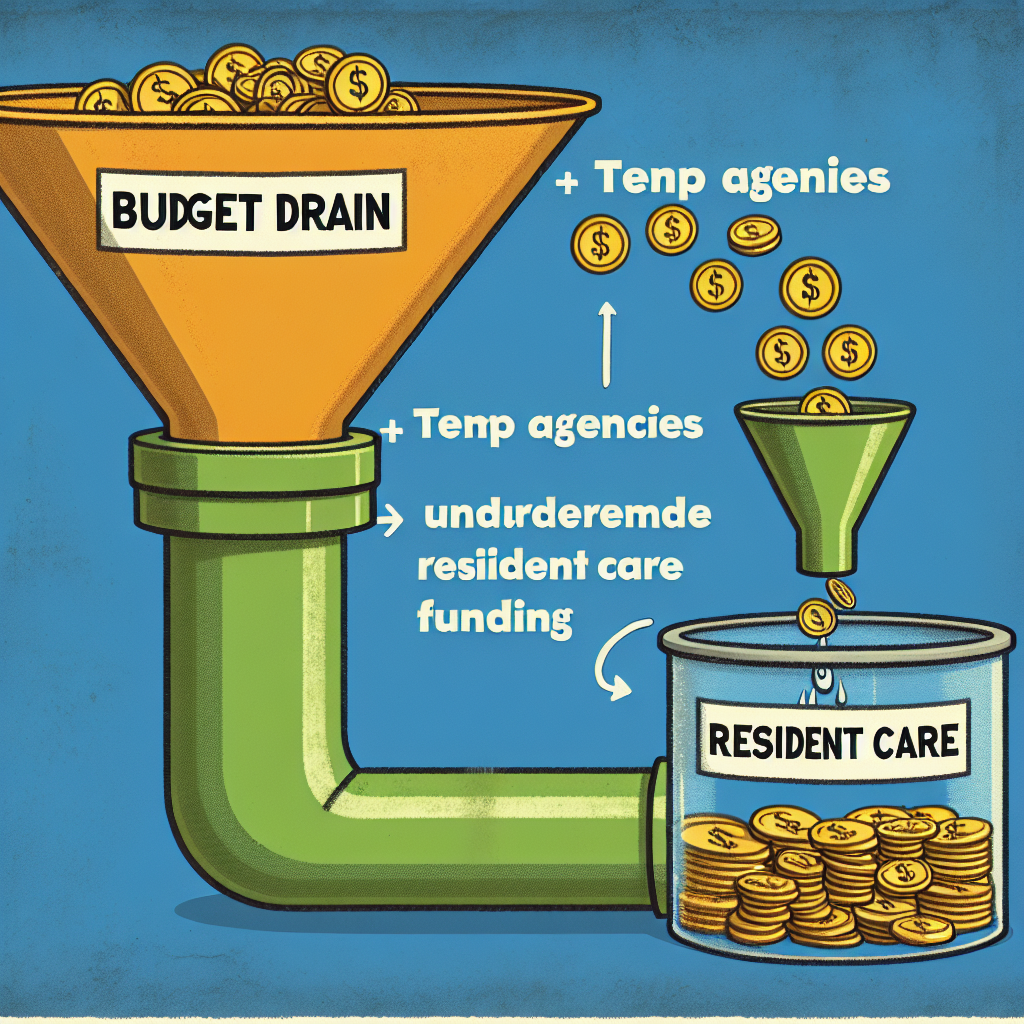New York, NY—Nursing homes across the nation are grappling with a silent crisis that could not only undermine the quality of resident care but also divert critical funding away from these facilities. At the heart of this issue is the growing reliance on temporary staffing agencies, a trend that is creating a budget strain with far-reaching consequences.
With an aging population and increasing demands for healthcare services, nursing homes have been under tremendous pressure to provide continuous, high-quality care. However, the chronic shortage of healthcare professionals has made it exceedingly difficult to maintain a stable, permanent workforce. In response, many facilities have turned to temporary staffing agencies to fill the gaps. While this strategy might offer a short-term solution, it comes at a significant cost, both financially and in terms of patient care.
Recent reports have illuminated the stark financial implications of this trend. According to data from the American Health Care Association, the cost of hiring healthcare workers through temporary staffing agencies can be as much as double the cost of employing full-time staff. This increased expenditure is draining resources from critical areas, including patient care and facility improvements.
“The reliance on temporary staffing agencies is like putting a band-aid on a gaping wound,” stated Dr. Rebecca G. Aimes, a senior fellow at the Health Policy Research Institute. “It may temporarily stop the bleeding, but it doesn’t address the root cause of the problem. And in the meantime, it’s diverting vital resources that could be used to enhance resident care.”
Aside from the financial toll, the use of temporary staff poses challenges to maintaining a consistent quality of care. Nursing home residents benefit from familiarity and continuity in their caregivers, which is disrupted when staff constantly rotate. This discontinuity can affect everything from the basics of personal care to the nuances of handling complex health issues, ultimately impacting resident satisfaction and health outcomes.
Moreover, temporary staffers, despite their qualifications, are less likely to be as invested in the facility’s long-term success or as familiar with the residents’ individual needs compared to permanent employees. This detachment can hinder the development of meaningful caregiver-resident relationships, which are crucial for providing empathetic and effective care.
Experts argue that the solution lies in addressing the root causes of staffing shortages. This includes improving working conditions, offering competitive wages to permanent staff, and investing in training and retention programs. Only by creating a more attractive and sustainable working environment can nursing homes hope to reduce their reliance on temporary agencies and redirect their budgets towards enhancing resident care.
As the population continues to age, the stakes have never been higher. Nursing homes play a critical role in our healthcare system, and ensuring they have the resources necessary to provide high-quality care is paramount. Tackling the staffing crisis head-on is not just an economic issue—it’s a moral imperative to protect some of our society’s most vulnerable members.


